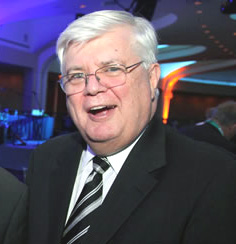Alhassan.Yusha: Looking back at previous summits, in which way did this year’s event stand out?

Finally, we also looked at two critical subjects whose solutions are necessary if US-Africa trade and investment is to increase. No country in Africa is meeting its current power and electricity needs, so we convened a conference on Power prior to the summit. At the same time we convened another conference on finding partnerships. You can’t do business without a partner. How do you find a good partner? It is difficult. Therefore, our new US-Africa Business Centre convened an international partners conference. We simply focused more on critical issues than we ever have and the results of our having done this are quite good.
A.Y: Which aspect of the summit would you have wished have been better handled in future?
S.H: Even though collectively, we had more Summit-related events than at any previous Summit, I wish we had done broader marketing, especially around the US. We need to be reaching more American companies, especially beyond the East Coast. We see changes in the corporate response to Africa now, but if we were able to reach more of the country’s companies perhaps those changes would move at a faster pace.
A.Y: Some critics view this event as yet another step by Corporate North to re-colonize Africa under the guise of free trade; while others interpret this renewed interest in Africa as America’s reaction to what seem a slow, but sure domination of Africa by corporate China. What’s your take?
S.H: Critics are legless people who teach running. It is easy to be cynical in the world today. US interests are no less noble than all the other countries investing in Africa. Our interests in Africa are based on the reality that we need one another. I do not fault China for investing in Africa. I fault ourselves for not investing more broadly and for not supporting the US private sector that wishes to become more involved in Africa. Greater US involvement in Africa only helps Africa as much as it helps the US economy. Certainly we are reacting to China to some extent, and perhaps we can be thankful that China has begun to awaken those in America responsible for US international economic policy. If it takes China to wake us up to the importance of Africa, so be it.
A.Y: Chinese firms are famous for looking at the bigger picture in their investment decisions in Africa–thus they commit to large scale infructural development often “pro bono”– with less strings attached; as a bait to gain trust of their African partners, then they venture in full force. Any lessons from the Chinese example?
S.H: China’s infrastructural development is not remotely ‘pro bono.’ It is part of the price they are willing to pay to get the minerals, deals and relationships needed for their own economic development. We should have been doing some of the same things. Infrastructure development helps the African country, but just as importantly it helps China get the produce and minerals they are taking to the Asian market. Frankly, it also prevents cash they would otherwise pay finding its way to European banks. It is smart business. We could be helping our economy by doing the same thing.
A.Y: Can you explain to our readers what blueprint CCA has in place to monitor the existing and potential US investors in Africa–in terms of their adherence to Corporate Social responsibility, as well as Local Content policies?
S.H: It is not our job to monitor our companies. It is the role of governments and the companies themselves to monitor corporate social responsibility aspects of contracts. Our power is a convening power. We can put various parties at the same table together, but we do not and cannot monitor compliance.
A.Y: Two of the most exclusive aspects of this year’s summit are the :”B2B-match-making”, as well as “The Vault”.What’s your expection of these innovative instruments in terms of their potentials to incubate new businesses and expand existing porforlios–particularly in emerging markets?
S.H: I think the matchmaking, especially for small and medium-sized businesses can be the heart of the organization in five years or more. Anyone who wants to do business in Africa will need a reliable partner. We can help companies find those reliable partners. The Vault was primarily a vehicle for companies to get financing for any deal that may have developed at the summit. We have found this to be an effective tool at our major conferences.
A.Y: Finally, how do you see the future of AGOA and other related policies on Africa and its future as an emerging market–at a time when Congress seem to disagree on almost everything?
‘
S.H: The state of political affairs in America is tragic, not only for the country but for the whole world. We would be the laughing stock of the world were its ramifications not so frightening for everyone else. I am optimistic, however, that AGOA will be renewed. However, until we address more serious issues of infrastructure, financing and partnerships, AGOA will be of limited effectiveness for most nations. The reason that South Africa is the major beneficiary of AGOA is that it has an advanced infrastructure system that allow South Africa to use it effectively.
Thank you so much for making time to speak to AfricaNewsAnalysis (ANA).
